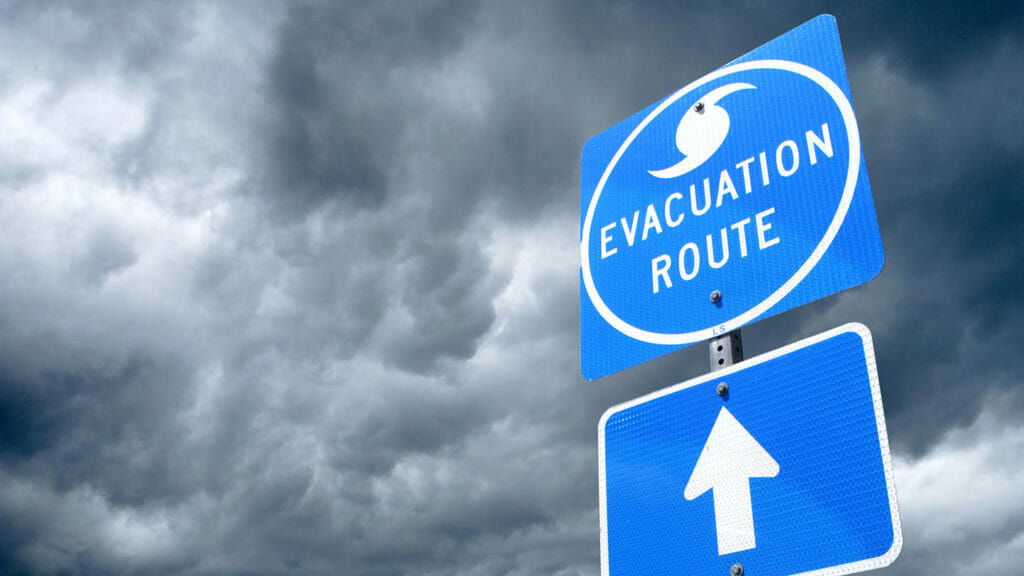
As Hurricane Ian was being upgraded to a Category 3 major hurricane on Tuesday, long-term care communities and hospitals in areas at highest risk for storm surge were evacuating — or preparing to evacuate.
Twenty-nine nursing homes had evacuated as of Tuesday afternoon, according to the state Agency for Health Care Administration. They, just like various political leaders, were preparing for the worst as a matter of prudence. Ian was expected to make landfall early Wednesday afternoon.
Florida Gov. Ron DeSantis (R) issued a state of emergency order for all of Florida’s 67 counties on Saturday, and US Department of Health and Human Services Sec. Xavier Becerra declared a public health emergency for the state on Monday. The declaration followed President Biden’s emergency declaration and gives the Centers for Medicare & Medicaid Services beneficiaries and healthcare providers and suppliers greater flexibility in meeting emergency health needs.
“We are keeping in regular contact with the Agency for Health Care Administration officials and have staff working at the Emergency Management Office to help communities with evacuating, locating beds, supplies or what they may need,” Florida Senior Living Association / Florida Senior Living Institute President and CEO Gail Matillo said in a statement. “We have been getting the latest information to our communities and are working with them to enter data into the state’s Health Facility Reporting System.”
She said Florida’s senior living communities’ hurricane preparedness has evolved in the past few years. She noted the only difficulties communities were experiencing with Ian were transportation issues and last-minute evacuations in south Florida.
Providers hitting the road, and not
As of Tuesday afternoon, nine Brookdale Senior Living communities located in evacuation zones already had moved residents or were in the process of moving them ahead of the storm’s expected landfall.
In most cases, residents were evacuated to sister communities or hotels. On its website, Brookdale indicated that it has detailed plans in place that include staging transportation to move residents and employees and providing temporary accommodations, as well as food, beverages and supplies.
Westminster Communities of Florida indicated that several of its communities were evacuating. Sonata Senior Living posted information about its hurricane preparation plans, backup generators, communication and respite stays. Allegro Senior Living posted on its website its goal to shelter in place unless ordered to evacuate by authorities.
System testing in full force
Following the significant 2017 Atlantic hurricane season and the subsequent implementation of the Emergency Environmental Control for Assisted Living requirements, Florida Assisted Living Association CEO Veronica Catoe said that assisted living facilities and adult family care homes in the state have submitted emergency power plans and have generators onsite.
She told McKnight’s Senior Living that during a call with providers Tuesday morning, AHCA stressed the need for facilities to test their generators, have enough fuel on site for four days, check batteries in carbon monoxide detectors and train staff on how to manually turn on the generators.
Catoe said that in May, FALA and other industry partners hosted an annual emergency management seminar in Orlando that covered topics including comprehensive emergency management plan approval, generator requirements, water intrusion, fire safety, elopement, and pre- and post-disaster considerations.
“Though communities are prepared, there are situations where a facility may become uninhabitable during an emergency or natural disaster, and operators are tasked with finding suitable alternative housing for dozens of residents,” Catoe said. “FALA has connected with outside resources which may be able to provide shelter in the event any of FALA’s members are forced to evacuate residents.”
‘We have to do a much better job’
Florida AHCA’s generator status report indicated that all Florida assisted living communities had working backup generators as of their last inspections. State emergency power rules require assisted living communities to have sufficient fuel maintained onsite to power critical life safety equipment and ensure safe indoor temperatures for 96 hours.
During a webinar Tuesday morning with 650 assisted living providers, however, Florida AHCA Secretary Simone Marstiller expressed concerns about assisted living communities testing generators and having sufficient fuel onsite to run those generators in the event of power outages.
“In a state like Florida, we have to do a much better job of preparing and testing and doing these things regularly,” Marstiller said.
Exhaustive preparation, resources
Florida AHCA has a Hurricane Ian resources website providing healthcare facility updates, Medicaid updates, state executive orders and regulatory information.
Florida AHCA Deputy Secretary Health Quality Assurance Kim Smoak urged providers to monitor the National Hurricane Center website for the latest storm information and heed orders from local emergency management offices that issue evacuation orders.
The Florida Health Care Association has a website devoted to Hurricane Ian resources, including a hurricane planning checklist.
Orange County officials indicated during a news conference on Tuesday that fire crews would be visiting every assisted living community in the county to ensure that they are prepared for Hurricane Ian.


